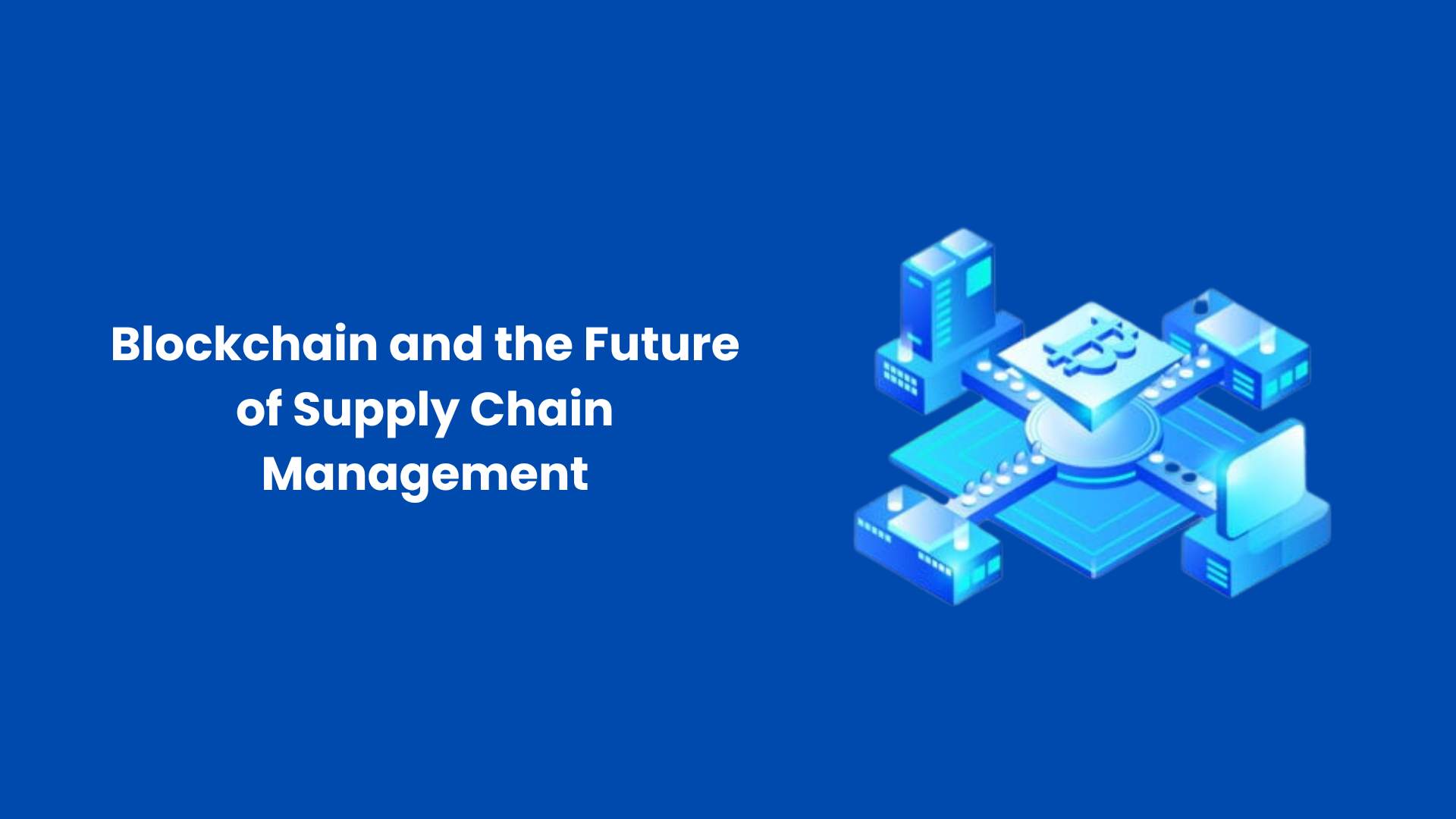Blockchain has emerged as a disruptive force with the potential to drastically impact a wide range of industries. Supply chain management is one such industry that is primed for significant change. In this blog, we'll look at how blockchain technology and supply chain management may be used to improve operations, increase transparency, and ensure security. Along the way, we'll discuss the significance of Blockchain Certification and how it fits into the Future of Blockchain Technology.
Table of contents
- The Current State of Supply Chain Management
- Blockchain's Role in Supply Chain Management
- Future of Blockchain in Supply Chain Management
- Blockchain Certification
- Conclusion
The Current State of Supply Chain Management
The traditional supply chain is complex and opaque. It is difficult to accurately follow a product's course since it passes through a vast network of suppliers, manufacturers, distributors, retailers, and consumers. This opacity can lead to a variety of issues, including fraud, theft, delays, and inefficiencies. To overcome these difficulties, the future of supply chain management must involve cutting-edge technology, and blockchain stands out as a leading contender.
Blockchain's Role in Supply Chain Management
Blockchain, well-known for its immutable and decentralised ledger, offers several advantages that make it an excellent solution for supply chain management. Let's look at how blockchain technology is poised to transform the industry:
- Transparency and traceability: Blockchain provides a public, impermeable ledger that records all data and transactions. Each product may be assigned a unique identification number, or "block," which includes information such as where it originated from, how it was manufactured, and how it was distributed, among other things. This allows interested parties to trace the journey of a product from its origin to its final product, ensuring its authenticity and quality.
- Reduced Fraud and Counterfeiting: One of the most serious issues confronting supply networks is the growth of counterfeit goods. Blockchain certification provides an unchangeable record of each product's authenticity, which can help address this issue. Customers and businesses may be able to validate the legitimacy of things by scanning a QR code or searching for the authenticity of a product on a blockchain-based database.
- Enhanced Efficiency: Traditional supply chain management involves a lot of paperwork, manual record-keeping, and middle-man interventions, which creates delays and errors. Blockchain accelerates data entry and verification by automating these processes. This reduces administrative costs while also hastening commodity flow across the supply chain.
- Smart Contracts: On the blockchain, smart contracts enable the automatic execution of specified actions when specific criteria are met. For example, when a product is delivered, and its condition is checked, money may be instantly sent to the provider. This reduces the need for mediators and reduces the number of arguments.
- Improved Inventory Management: Real-time tracking and data sharing on the blockchain enable better inventory management. Businesses may save money by keeping an eye on inventory levels, improving demand forecasts, and decreasing excess stock.
- Supply Chain Sustainability: As customers become more environmentally conscious, supply chain sustainability is becoming increasingly crucial. By tracking and confirming a product's environmental impact across its entire existence, blockchain helps organisations to make uniform decisions and demonstrate their commitment to sustainability.
Future of Blockchain in Supply Chain Management
Several changes are anticipated to define blockchain technology's future in supply chain management as it continues to develop:
- Interoperability: Different blockchain networks and systems are likely to become increasingly interoperable. As a result, businesses can easily exchange data between blockchains, enabling more collaboration and openness across the whole supply chain ecosystem.
- Integration with IoT: It provides real-time information on the location and condition of things. When combined with blockchain, this data may be securely kept, enabling even greater supply chain visibility and management.
- Advanced Analytics: Predictive modelling and advanced analytics may be utilised with blockchain's massive data. Businesses may learn about trends, identify bottlenecks, and optimise their supply chain operations.
- Global Adoption: We may expect global adoption as more businesses see the benefits of blockchain in supply chain management. As a consequence, processes will become more standardised, making it easier for firms to collaborate on a global scale.
- Regulatory Compliance: Blockchain technology is likely to play a significant role in ensuring that regulations and certifications, such as those about food safety, product legitimacy, and environmental criteria, are obeyed.
Blockchain Certification
Blockchain certification is a critical component of the future of supply chain management. It comprises authenticating and recording critical data about items and procedures on the blockchain to create an open and immutable record. The following are some of the ways blockchain certification is changing the industry:
- Authenticity: Businesses may use blockchain certification to check the integrity of their products, reducing the possibility of counterfeit items entering the supply chain.
- Quality Assurance: Using blockchain, manufacturers and suppliers may preserve detailed records of the manufacturing process, ensuring that items meet quality standards and regulatory requirements.
- Sustainability: Blockchain certification may assist firms in demonstrating their commitment to sustainable practises and providing evidence of conformity with sustainability requirements.
- Traceability: By ensuring that blockchain certification is used at every level of the supply chain to identify, it will be easier to find the source of any problems or faults and take the appropriate corrective action.
Conclusion
Supply chain management might transform thanks to blockchain technology, which would make security, traceability, and transparency hitherto unreachable. With growing use, interoperability, and integration with cutting-edge technologies like IoT, the future of blockchain technology in supply chain management is bright. Blockchain certification will be essential for assuring product trust, compliance, and authenticity. Supply chains will become more effective, sustainable, and resilient as companies continue to adopt these innovations, ushering in a new era of openness and accountability in the global marketplace.






0 Comments